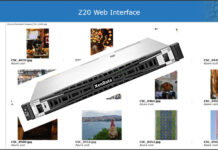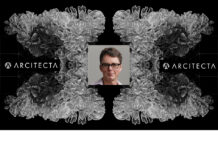Hammerspace has added its data orchestration software in Arrow Electronics-supplied Dell server boxes. Customers can buy subscriptions to these appliances to get their scattered data estates orchestrated and organized for accelerated access.
Hammerspace’s Global Data Platform (GDP) includes parallel NFS-based file system software to manage data in globally distributed locations, both in file (NFS) and object storage, using SSDs, disk drives, public cloud services (AWS, Google Cloud, Azure, and Seagate Lyve Cloud), and tape libraries. The data can be located in a global namespace, orchestrated, placed, and accessed as if it were local. Hammerspace is working with Dell servers and Arrow Electronics to have reference architecture-defined appliances made available to customers for faster deployment of systems. Customers or resellers can order pre-configured bundles based on the most common deployment scenarios, such as size, number of locations, and performance requirements.
Molly Presley, Hammerspace SVP of Global Marketing, said: “Organizations today need streamlined data strategies that empower their analytics teams to pursue AI, data analytics, and deep learning, all while ensuring robust data availability and security. Achieving this balance requires the high performance of parallel file systems for GPU-intensive compute workflows, the enterprise-grade features of NAS to meet industry standards, and the unifying power of a global namespace to seamlessly integrate data across locations.
“Our new series of appliances marks a critical leap forward in accelerating the deployment of our Global Data Platform software, delivering the capabilities our customers need to stay ahead.”
Hammerspace’s GDP has separate Anvil metadata server and data storage components, and the appliance reference architecture makes this clear. There are a series of defined appliance models:
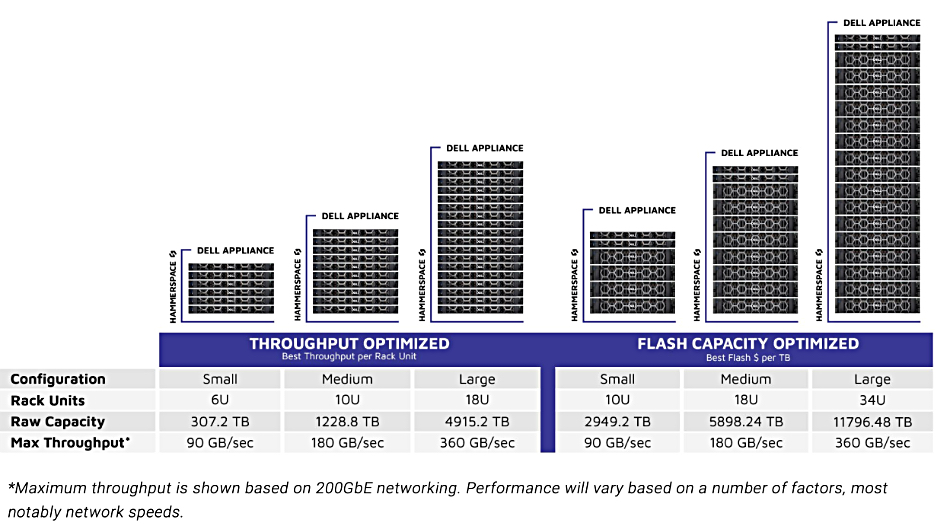
The metadata and data servers are scaled independently, and there are two types of data servers, Data Services (DSX) and Linux storage server nodes. DSX nodes scale out client access and performance, providing multi-platform data services including multi-protocol access: NFS v3, SMB and S3. The Linux storage server nodes are for direct parallel NFS v4.2 access, scaling performance and capacity, or just to scale capacity:
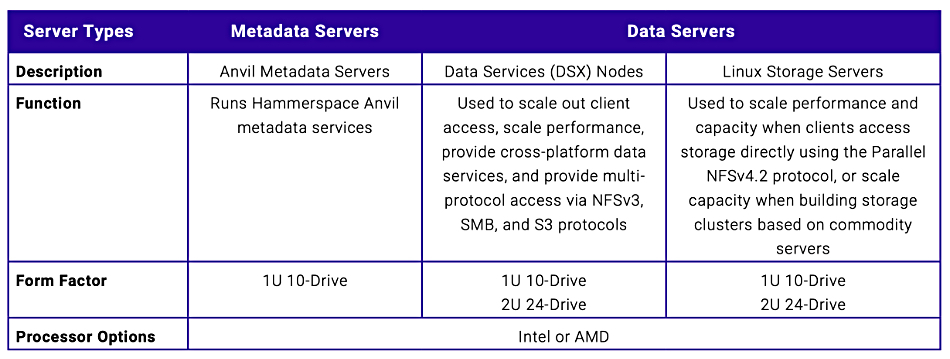
There are two types of appliance; those optimized for sheer throughput performance or focused on capacity:
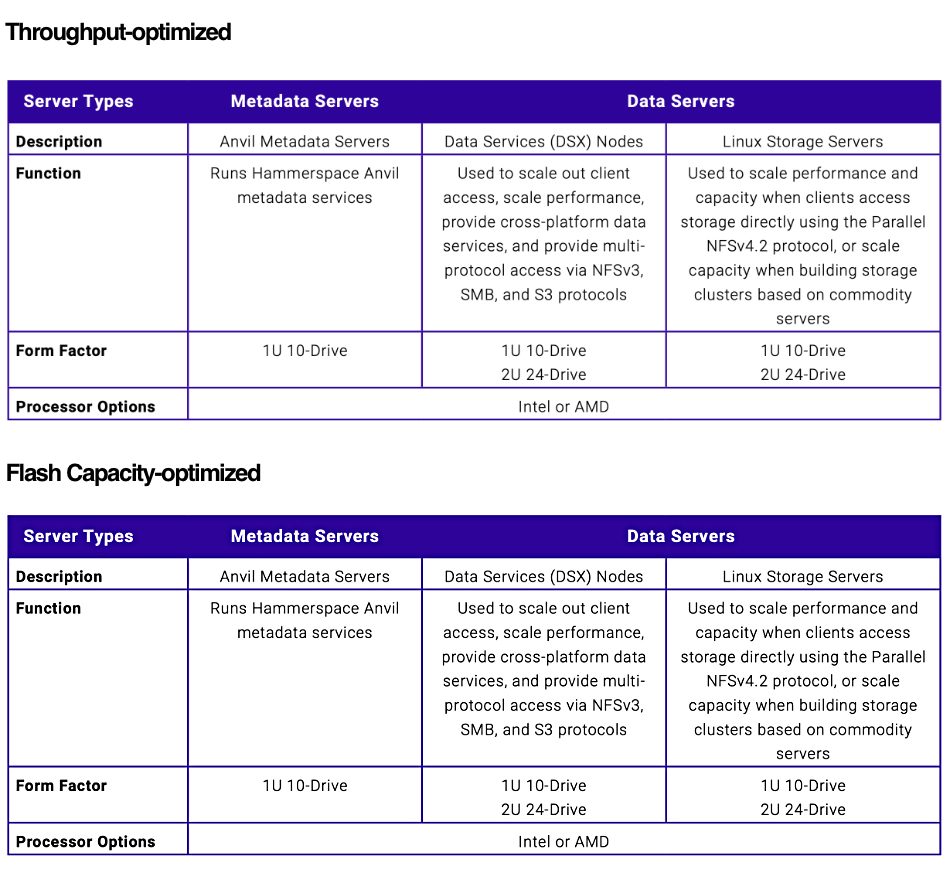
The data servers are either a 1RU x 10-bay drive server model or a 2RU x 24-bay model. A variety of NVMe SSDs are available, both mixed use (1.6-6.4 TB) and read-intensive (1.92-61.44 TB).
Each of the metadata and data servers can be configured with 25, 100, 200 or 400 GbitE network cards.
Check out a Hammerspace Dell server webpage here and the seven-page reference architecture document for more details. Hammerspace software can also run on any of the popular NAS, block, object, and cloud storage platforms.





